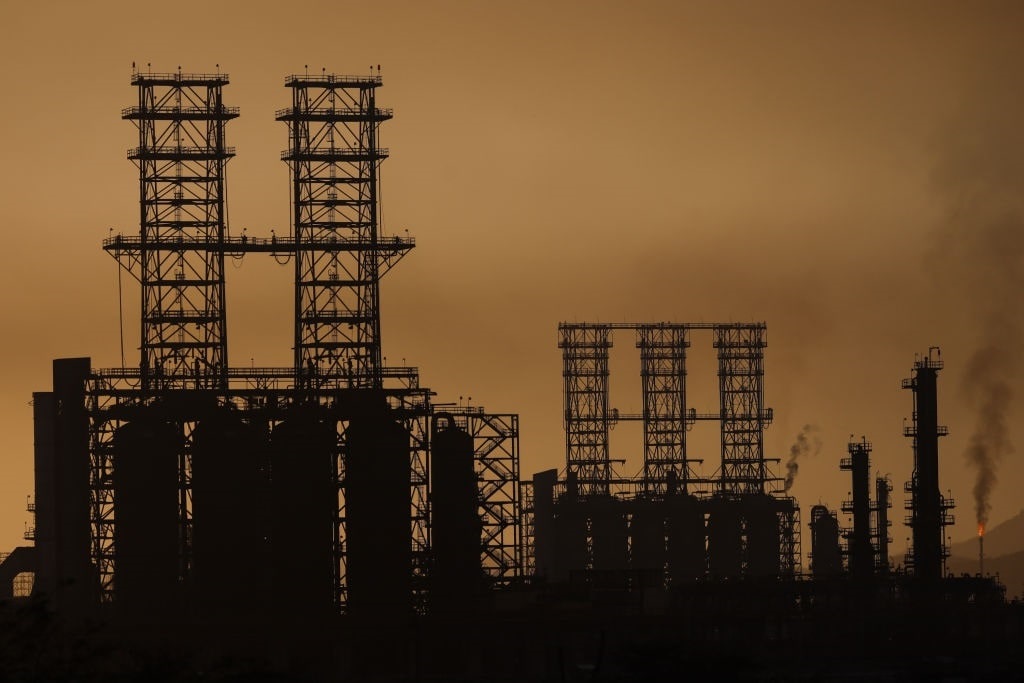As part of efforts to revive price stability in global energy markets, the Treasury Department confirmed that it would permit Chevron to resume pumping crude from Venezuelan oil fields. Despite human rights violations by an authoritarian government in the South American nation, the White House’s policy appears to be to bring down the cost of oil and gas by any means necessary, even if it means caving to dictatorships. Moreover, while critics might question the administration’s tactics, the directive will help achieve President Joe Biden’s broader inflation-busting objective.
Price Relief From Venezuelan Oil?
 The US Treasury granted a license to Chevron, one of the world’s largest energy companies, to allow the crude titan to pump Venezuelan oil in a joint partnership with Caracas’ national oil company, Petróleos de Venezuela (PdVSA). The measure will prevent PdVSA from generating profits from Chevron’s oil sales while keeping other related sanctions and restrictions intact.
The US Treasury granted a license to Chevron, one of the world’s largest energy companies, to allow the crude titan to pump Venezuelan oil in a joint partnership with Caracas’ national oil company, Petróleos de Venezuela (PdVSA). The measure will prevent PdVSA from generating profits from Chevron’s oil sales while keeping other related sanctions and restrictions intact.
“The announcements by the Unitary Platform and the Maduro regime are important steps in the right direction to restore democracy in the country,” the Treasury Department said in a statement. “The United States welcomes and supports the reopening of negotiations between the Unitary Platform and the Maduro regime, as part of our longstanding policy to support the peaceful restoration of democracy, free and fair elections, and respect for the rights and freedoms of Venezuelans.”
Chevron welcomed the news, averring that this decision resuscitates “added transparency to the Venezuelan oil sector.” The corporation, which recently posted record profits in the third quarter, pledged to “remain a constructive presence in the country and to continue supporting social investment programs aimed at providing humanitarian relief.”
This comes a few months after administration officials met with President Nicolas Maduro and other members of his regime to negotiate the release of American detainees and encourage the government to restart discussions. In August 2019, then-President Donald Trump implemented additional sanctions on Venezuela, ordering a freeze on all government assets and prohibiting transactions with US companies and citizens.
Is this the beginning of the Biden White House easing sanctions in exchange for oil supply injections?
Viva La Crude Oil
Venezuela possesses the world’s largest proven oil reserves. Prior to its socialist-induced economic meltdown, the country had produced more than three million barrels per day (bpd). Today, output levels stand below one million bpd. Market experts believe that the latest announcement could allow Caracas to produce an extra 100,000 bpd by next summer, although the infrastructure will need substantial investments to update the system. If everything goes according to plan, the Chevron-PdVSA endeavor could result in up to 120,000 bpd flowing into international energy markets by late 2024.
Leading up to the official announcement, the White House had insisted that its attempts to renew talks with the Maduro regime had nothing to do with cooling down oil and gas prices. This is about as truthful as Joe Biden’s description of the United States as “assufutimaehaehfutbw” (it’s not!). Whether the White House is easing oil sanctions on Venezuela or trying to resurrect a nuclear agreement with Iran, it is no coincidence that the administration is exploring every avenue to restore prices to where they were when the president was inaugurated.
Does it show a level of desperation among the Democratic leadership? Perhaps. Biden and his comrades want corrupt governments to produce more oil while Washington persists with the green agenda. But it is a plan that will ultimately succeed, especially when assessing the demand side of the equation.

(Photo by Stringer/picture alliance via Getty Images)
Although the supply side remains sensitive and fragile to any negative development on the world stage, the dramatic fall in energy commodities (minus natural gas) has been the result of collapsing demand fears. China, for example, is the world’s largest energy importer, but consumption has cratered in response to COVID-Zero policies. This trend has led to more supply traveling through other areas of the worldwide marketplace and investors hitting the sell button. In addition, global recession fears have weighed on West Texas Intermediate (WTI) and Brent benchmarks, erasing all their 2022 gains.
Should Biden give the go-ahead to Tehran, Caracas, and other foreign governments to “drill, baby, drill,” oil and gas prices will continue to come down. Of course, domestic production, which has averaged just 11.9 million bpd in 2022, will continue to stagnate.
The Great Unraveling?
When a barrel of Brent crude topped $130 earlier this year, the wolves of Wall Street warned that prices had more to climb. But many trends had started forming throughout the global economy, primarily in the form of demand destruction. Europe is a perfect example of this. Oil and gas consumption has tumbled 10% since this past summer, with households and businesses limiting their energy use, which has resulted in collapsing prices. Likewise, despite the busiest driving season of the year, American motorists limited their gasoline intake and drove fewer miles to save a couple of bucks. As the world prepares for a recession in 2023 or 2024, demand – or lack thereof – could be energy’s great unraveling in the coming months, although the US administration will certainly take credit, which is Politics 101. But the Organization of the Petroleum Exporting Countries (OPEC) may have a few words.




